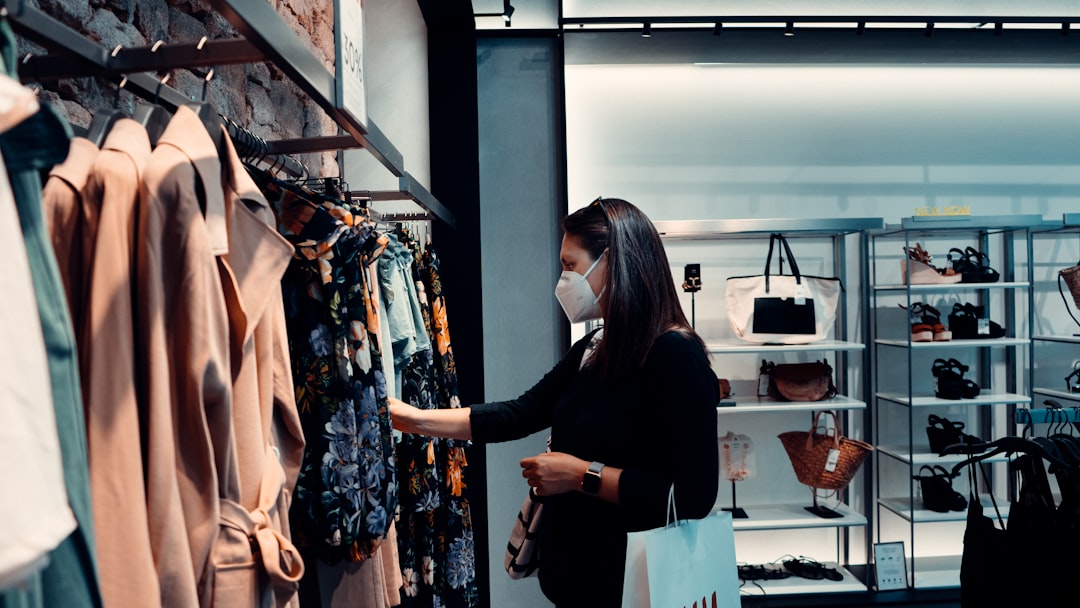Tying up loose ends
Dear Reader,
This is my last newsletter before heading off on a summer break. I’ll be back in August.
For those of you who are paying subscribers, payments will be paused during this time. If you have an annual subscription, the time I am away will be added to your subscription at the end.
In this last edition, I thought I’d look back on some of the issues I've covered over the past 10 months to see how things developed since I reported on them.
The cranes are still standing still
All the way back in September, I wrote about the government’s spectacular failure to hit its house construction targets. Far from upping home builds by 100,000 a year to address skyrocketing rents, the Scholz government had overseen one of the biggest slumps in house construction history.
Partly, this was due to events outside their control: the war in Ukraine drove up the costs of steel, cement, and other materials. At the same time, an array of new environmental standards were also adding to both costs and paperwork, while the government cut home building subsidies.
What has happened since?
This year, the crisis shows little sign of abating. Figures for April showed a 17 percent drop in planning applications compared to last year when the situation was already bad. Building lobby group HDB expects 10,000 layoffs this year. With so few homes being built, more than one in ten Germans are now living in “overcrowded apartments.”
“No industry is as deeply regulated as construction: we are faced with ever more government regulations, outdated rules, and public administrations that are barely digitized,” complained HDB boss Peter Hübner.
Are there better ways of dealing with the housing crisis than simply throwing up ever more buildings and cutting into green spaces? I looked at a few alternative possibilities:
How to solve Germany's housing crisis
The Scholz government titled its coalition agreement 'Mehr Fortschritt wagen,' meaning 'Daring to make more progress,' and it didn't hold back on the ambition of its promises. Regarding housing, the agreement pledged the construction of 400,000 homes annually, a quarter of which were supposed to be social housing.
Elsewhere in the real estate sector, various luxury construction projects came to a standstill after the Germanosphere’s version of Donald Trump was brought to his knees by rising interest rates last year. Rene Benko’s Signa group, which owned Galeria and KaDeWe department stores among other famous projects, went bust in November after it could no longer service its debts.
Galeria filed for bankruptcy at the start of the year leading to the closure of a dozen of its stores. Meanwhile, billionaire investors say that Benko tricked them into investing in his firm. Among his enemies are the Abu Dhabi royal family, who lent him €250 million only a few months before his empire collapsed. One source close to the family told Der Spiegel that Benko “will need a few more bodyguards” if he doesn't pay the money back. Last week, Austrian police raided his villa in Innsbruck as part of a fraud investigation.
Scholz ratchets up deportation rhetoric
Back in October, with the AfD soaring in the polls on the back of a new wave of irregular migration, Olaf Scholz made a headline declaration that he would deport criminal migrants “in a big way.”
The chancellor said that his government was working on deals with countries from Africa to Asia to ensure that they would take back their citizens in return for economic aid.
Have we seen a difference?
Deportations are up a bit this year. In the first three months of the year, close to 5,000 people were sent back home, which would put the government on course to deport around 3,000 more people in the year than in 2023.
Whether that will be enough to appease those demanding tougher migration policies is another matter. A seemingly never-ending sequence of violent incidents with asylum seekers arrested as suspects - the deadly stabbing of a police officer in Mannheim, and a young man being beaten to death on his way home from a school prom are just two recent examples - have kept “migrant crime” at the top of the political agenda.
Scholz has cranked up his rhetoric, promising to start deporting people to Afghanistan and Syria, two countries that Germany has no diplomatic ties with. He is reportedly in secret talks with Uzbekistan over a deal to deport Afghans to Central Asia without having to talk to the Taliban.
But that move is controversial inside the government, with the Green-run foreign ministry privately expressing dismay over rights issues.
Ten months on from Scholz’ pledge, the AfD are still ahead of the SPD in polling despite various scandals inside the populist party.
The CDU are also calling for a more draconian course.
Markus Söder, state leader in Bavaria and a man with an outside shot at being the conservative chancellor candidate, has demanded that all rejected asylum seekers with criminal records should be locked up until they agree to leave the country.
Explained: Scholz' pledge to 'deport people in a big way'
Dear Reader, In a recent edition of Der Spiegel, Germany’s leading political magazine, Olaf Scholz’ face was splashed across the cover accompanied by the words: “we need to finally deport in a big way.” In terms of the actual substance of what the chancellor said, there was nothing new here. The coalition agreement, signed by his traffic light government …
Paying people to sit on the sofa?
Back in November, a debate flared up over whether the Bürgergeld, a unemployment reform brought in by the Scholz government, was discouraging people from taking up work. Critics said that it was too close to the minimum wage, meaning that it barely made sense to take on a low-paid job.
At the time, a study by the Kiel Institute for the World Economy (IfW) arrived at the conclusion that the pay gap between not working at all and slaving away on the minimum wage was just over €2 per hour.
What happened next?
Soon afterwards, the government tried to show that it wasn’t being soft on the idle by announcing a two-month freeze on benefits for anyone who turned down a “reasonable” job offer.
But, at the start of the year, jobless benefits went up by 12 percent after having risen by the same amount the previous year. Those increases meant that the unemployed were receiving “wage” increases that trade unions were struggling to negotiate with employers.
In April, a report by the state-funded Labour Market Institute (IAB) concluded that the introduction of Bürgergeld meant that 30,000 fewer people were taking on work per year than would have otherwise been the case.
That study appeared to provide definitive proof that the new welfare system was a dud.
However, the study’s author argued against a return to the old system, saying that imposing severe penalties meant that people often took on jobs they weren’t suited to simply to avoid punishment.
Does work still pay in Germany?
Dear Reader, Some political debates are as old as politics itself. Such as the one about whether giving alms to the poor makes them lazy. Last year, Olaf Scholz’ government introduced a new welfare reform to replace the stringent old Hartz IV system. Given the friendly sounding name
Have farmers been appeased?
In December, Germany’s farmers were in uproar over a shock government decision to make them start paying tax on their tractors.
Germany’s farming sector is split into factions. Some run organic farms and advocate cutting pesticide use, others are large-scale operations that seethe at what they see as excessive environmental regulation.
But, what all farmers could agree on in December was that having to start paying taxes on their tractors was going to make life harder for everyone.
The protests were huge - thousands of tractors brought central Berlin to a standstill - and took the government by surprise. In a panicked reaction, the government first agreed to U-turn on the decision to enforce a road tax on farm vehicles, and then promised a new law that would lift the bureaucratic weight off agrarians’ shoulders.
This week, the government revealed its package of reforms. It includes a change to tax rules that will reduce the financial pain of years with bad harvests, as well as incentives to put animals onto fields rather than keeping them in stalls.
The reform was tentatively welcomed by the organic farming scene, but the mighty Bauernverband called it “lightyears away from what we need.”
It would seem that the brief moment of unity has passed.
Sharpening the pitchforks
The German Review is funded entirely by its readers. If you would like to support this project’s future - and receive an extra newsletter every week - sign up by clicking/tapping the button below!
Have the CDU turned a corner?
In January, I reported on the fact that the CDU were struggling to make it over 30 percent in polling, despite the woes of Scholz’ deeply unpopular government.
Historically, the CDU has tended to poll at over 40 percent when in opposition. What was causing this malaise? Was it questions over the credentials of party leader Friedrich Merz, or was it down to conservative voters abandoning the party after the centrist Merkel years?
Since then, favorable winds have been blowing for the CDU.
The AfD, currently second in polling, have been mired in controversy over a “secret plan” to deport millions of migrants, while two senior AfD figures have been caught up in Russian spy affairs.
Meanwhile, Scholz's government has continued to give the impression that it couldn’t organize playtime at a kindergarten.
Surely the CDU are left as the only adults in the room?
The effect on their polling numbers: they’ve gone up by… a single percentage point.
Seemingly, many voters simply refuse to believe that the CDU will deal with the issues they care about. I’d say that the cause is deeper than questions about personalities at the top of the party. We only need to look at our neighbors to see that Germany is far from the exception.
Why are the CDU so weak even though Germans hate their government?
Dear Reader, I hope you had a great New Year!
Bringing back conscription?
There is only one minister in the German government whom voters seem to remotely trust - that is defense minister Boris Pistorius.
He has been pretty direct about the fact that the German military isn’t ready to fight a war and has made it his mission to bring the armed forces back up to scratch.
One of the major issues he has had has been to find enough recruits.
It is an open secret that Pistorius wanted to bring back some form of conscription to address this issue. If he had had his way, a select group of young men would have had to start doing basic military on turning eighteen.
If rumors are to be believed, Scholz blocked these plans either because he was jealous of Pistorius’ growing popularity, or because the chancellor is only prepared to tip toe into the Zeitenwende he announced two years ago.
In the end, Pistorius announced a plan that will make it compulsory for all German males to fill out a form upon reaching adulthood in which they give details on their health, level of education, and willingness to take up arms.
The defense minister said that he then wants to pick out “the fittest and the most motivated.”
Some 40,000 will be invited to turn up at a local careers center on a voluntary basis.
Should Germany's army be 'war fit'?
Dear Reader, Imagine for a moment that the head of your country’s armed forces was asked whether they would be capable of defending you in the event of war, and the best answer he could muster was: “if we had to fight today, we would do that.” It is …
What did the full ‘RKI files’ reveal?
In March, there was a lot of discussion of a possible “scandal” in the minutes of daily Covid crisis meetings held by the Robert Koch Institute, Germany’s disease control agency.
The release of the minutes turned out to be a PR disaster for the health agency due to its decision to redact swathes of the documents, which they reluctantly published after a years-long legal battle.
The justification for the redactions - that the agency wanted to shield its staff from abuse - only increased the suspicion that they had something to hide.
After a public outcry, health minister Karl Lauterbach agreed to re-release the documents in full.
That has since happened - and we haven’t heard much since. While no major scandal emerged, the complete minutes did show that the RKI occasionally appeared to suppress its own misgivings about government policy due to the fact that it takes orders from the health ministry.
Questions about whether the RKI needs more independence would naturally be asked in a Bundestag inquiry into the lockdown era. Government ministers are good at saying that they want such an inquiry, but no one can agree on what it should look like.
I think it’s a safe bet to say that it will never happen.
Germany forced to publish 'explosive' Covid files
Dear Reader, Remember the coronavirus and those minor infringements of constitutional rights that took place a couple of years back? It seems like the kind of thing that we might want to talk about so that we don’t end up tearing chunks out of each other next time around.
How did Höcke’s trial go?
The most controversial man in German politics went on trial in April on charges that he deliberately used a banned Nazi slogan during a speech. Björn Höcke, leader of the AfD in Thuringia and a history teacher by training, claimed that he had no idea that the slogan “alles für Deutschland” was once used by Hitler’s brown shirts.
Did Höcke know what he was doing? On the one hand, this phrase sounds harmless enough and one could plausibly use it without knowing about its historical baggage. On the other hand, alles für Deutschland has long been a popular far-right code for the very reason that it makes no obvious reference to Hitler.
In court, Höcke presented himself as the victim of “bullying” by the political establishment and claimed that he had “absolutely no time for” the Nazi dictatorship.
The judge wasn’t convinced. He sided with the prosecution, which put forward other examples of Höcke using Nazi terminology. In announcing his ruling the judge said: “you are a talented speaker and an intelligent man who knows what he says.”
Höcke, who has said he will fight the verdict, at least avoided going to jail. That means that he will be able to run in state elections in Thuringia later this year.
The perfect dog whistle
Dear Reader The accusation that a word or phrase used by a politician is a ‘dog whistle’ - i.e. it is pitched at a frequency that most listeners can’t hear but sends a clear message to a specific clientele - has become a journalistic cliche in recent years.
Wishing you a pleasant summer,
Jörg Luyken










